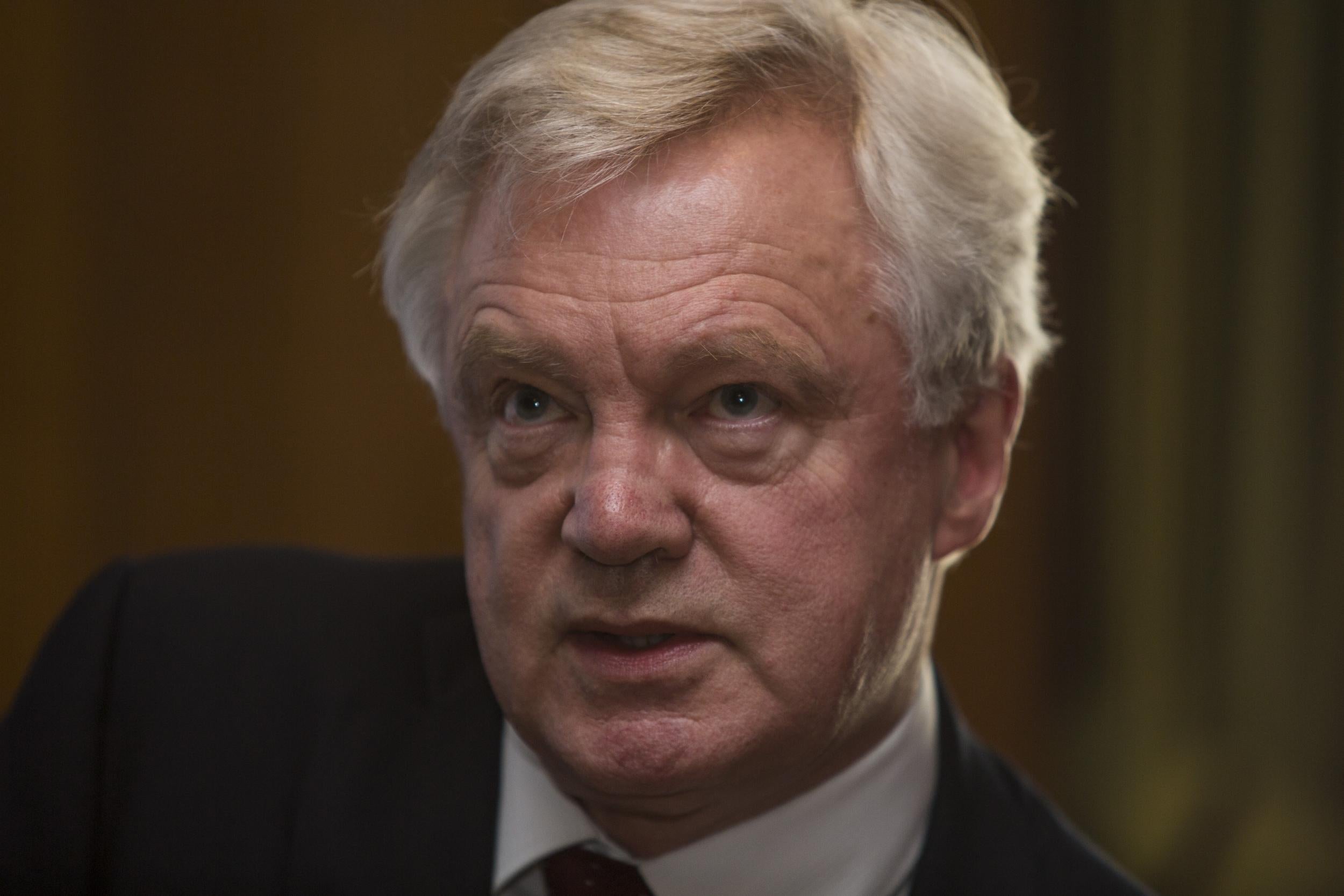Brexit: David Davis says free movement will not be axed in a way that damages the British economy
The Cabinet minister's speech follows concerns raised in the private sector over whether businesses will be able to access the skilled labour they need after Brexit

Your support helps us to tell the story
From reproductive rights to climate change to Big Tech, The Independent is on the ground when the story is developing. Whether it's investigating the financials of Elon Musk's pro-Trump PAC or producing our latest documentary, 'The A Word', which shines a light on the American women fighting for reproductive rights, we know how important it is to parse out the facts from the messaging.
At such a critical moment in US history, we need reporters on the ground. Your donation allows us to keep sending journalists to speak to both sides of the story.
The Independent is trusted by Americans across the entire political spectrum. And unlike many other quality news outlets, we choose not to lock Americans out of our reporting and analysis with paywalls. We believe quality journalism should be available to everyone, paid for by those who can afford it.
Your support makes all the difference.Brexit secretary David Davis is promising businesses that the Government will not end EU freedom of movement in a way that damages the UK’s economy.
The Cabinet minister made the pledge as he suggested that firms should not be “wringing our hands”, but helping the Government forge the UK’s future after Brexit.
Mr Davis also warned other European countries against protectionist measures that would damage both the UK and EU member states.
His speech at the CBI in Cardiff followed concerns raised in the private sector over whether businesses will be able to access the skilled labour they need after Brexit.
It also comes after both he and Chancellor Philip Hammond raised the prospect of the UK paying the EU for access to the single market after Brexit, indicating the Government may accept a deal that concedes elements of free movement for access to the trade bloc.
The Office for Budget Responsibility has estimated that falling migration in the run up to Brexit alone could cost the economy £16bn. Less than 24 hours ago, Director General of the CBI Carolyn Fairbairn said the Government risks hurting businesses if it implements a new immigration system that is too bureaucratic.
Reassuring his audience, Mr Davis said on Thursday: “As we take back control of immigration by ending free movement as it has operated before, let me also say this, we won’t do so in a way that it is contrary to the national and economic interest.
“Because as the Chancellor has said, Britain must win the global battle for talent. No-one wants to see labour shortages in key sectors. That wouldn’t be in anybody’s interest.”
Mr Davis also said he understands that people who voted to remain in the EU are disappointed, but that Brexit must happen. To firms worried about the consequences, he said: “My request to you, leaders of industry here in Wales, and across the whole of the UK, is a straightforward one.
“Help us to write this new and exciting chapter in the country's history. I've said that it won’t be plain sailing and that there will be some uncertainty in the months ahead. But we need to navigate the course together and do all we can to limit that.
“And do so not wringing our hands about what is changing, but projecting confidence about what lies ahead.”
But Mr Davis was also delivered a message to EU leaders with whom relations have been strained as the country prepares to trigger Article 50, launching official Brexit talks.
He suggested the negotiation with the EU on the future relationship with Britain “will be unlike any before, since both sides will start from a point of exact equivalence.”
Warning leaders not to pursue a punitive agenda against the UK, he said: “It means we should steer clear of protectionist measures that would damage both the UK and Europe. Because it’s in all of our interests to avoid barriers to trade.”
Join our commenting forum
Join thought-provoking conversations, follow other Independent readers and see their replies
Comments